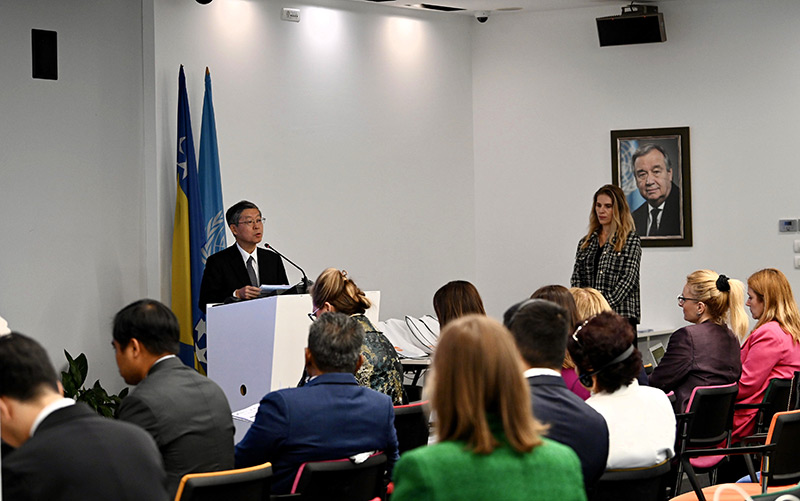APDA/AFPPD Parliamentarians’ Study Visit on Population and Development: Bosnia and Herzegovina
29-30 May 2025, Sarajevo, Bosnia and Herzegovina
This year marks the 30th anniversary of the Fourth World Conference on Women held in Beijing in 1995. In Eastern European and Central Asian (EECA), challenges persist in the areas of gender-based violence (GBV), as well as women’s economic empowerment and political participation; addressing these issues requires policy and legal reforms. Against this backdrop, 29-30 May, the Asian Population and Development Association (APDA) and Asian Forum of Parliamentarians on Population and Development (AFPPD), in collaboration with the United Nations Population Fund (UNFPA) Bosnia and Herzegovina (BiH) Office, organized a study visit programme in Sarajevo, focusing on gender equality and women's empowerment. BiH has extensive experience in institutionalizing gender equality, and during the study visit, various insights were shared, including those related to the Law on Gender Equality.
At the opening session, H.E. Aiki Toshihiro, Ambassador of Japan to BiH, underscored Japan’s strong commitment to international cooperation, including in humanitarian assistance, sexual and reproductive health (SRH), maternal and child health, and the Women, Peace and Security (WPS) agenda. The UNFPA Representative for BiH emphasized UNFPA’s central role in advancing gender equality and expressed appreciation to the Government of Japan for supporting this initiative.
On the first day, good practices in gender equality policy and legislation were introduced at the United Nations House, followed by an exchange of views with the Commission for Gender Equality at the Parliamentary Assembly. The delegation also visited the General Hospital “Prim. Dr. Abdulah Nakaš”, which offers comprehensive services for survivors of sexual violence, including medical, legal, and psychological support. At the Faculty of Law, University of Sarajevo, participants learned about efforts to institutionalize gender-sensitive legal education. On the second day, the Ministry of Civil Affairs hosted a session focused on national strategies for SRH and cancer prevention, exploring multisectoral policy coordination. At the Federal Parliament, discussions centered on legislative reforms for family-friendly labor policies and institutionalizing flexible work systems. The programme brought together parliamentarians mainly from EECA countries and experts, offering a meaningful opportunity to exchange knowledge and practices for advancing gender-responsive legislation and institutional reform.
This programme was supported by Japan Trust Fund (JTF), UNFPA, and International Planned Parenthood Federation (IPPF).

